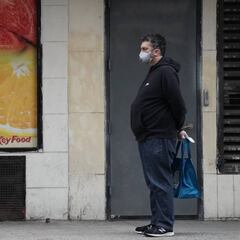Coronavirus: Can pets get infected with COVID-19?
How susceptible are animals, and particularly beloved household pets such as cats and dogs, to catching and spreading coronavirus?

On Sunday news broke that Nadia, a four-year-old tiger at the Bronx Zoo, became the first animal in the United States to test positive for coronavirus after it is believed the feline picked the disease up from an asymptomatic employee.
Thankfully, reports are the tiger is doing well after showing signs of some mild COVID-19 symptoms, namely a dry cough and a loss of appetite. Three other tigers and three lions from the zoo had also shown the same symptoms. But all of the felines are expected to make full recoveries.
Can cats and dogs get coronavirus?
The news has naturally left many people wondering how susceptible animals, and particularly their beloved household pets, are to coronavirus.
Well, as it stands, scientists believe that dogs are not in any relative danger of contracting coronavirus, neither are chickens, pigs and ducks.
However, as has been seen from the situation at Bronx Zoo, cats can become infected by COVID-19. There were also reports last week of a pet cat in Belgium being infected with coronavirus.
So the next question then is how likely are infected cats of passing the coronavirus to other cats or humans?
Follow our live coverage of coronavirus news and reaction as it breaks.

COVID-19 cat study in China
In one now-well-documented laboratory study in China, a team led by virologist Bu Zhigao introduced samples of the SARS-CoV-2 virus into the noses of five domestic cats. Three of the infected cats were placed in cages next to three uninfected felines. Later, the researchers found that one of three cats exposed to the infected cats became infected, although this newly infected feline showed no symptoms of COVID-19.
Related stories
Many scientists believe that the results of the study have suggested that while cats should be considered in efforts to control coronavirus, they are not a major factor in the spread of the disease and containment measures should remain focused on human-to-human contagion. So far it also seems that cats are unlikely to experience any adverse consequences from contracting coronavirus.
But what about cats passing COVID-19 to humans? Of course, a lot remains unknown about this novel disease, but to date scientists have seen no evidence that cats can spread the virus to people.

